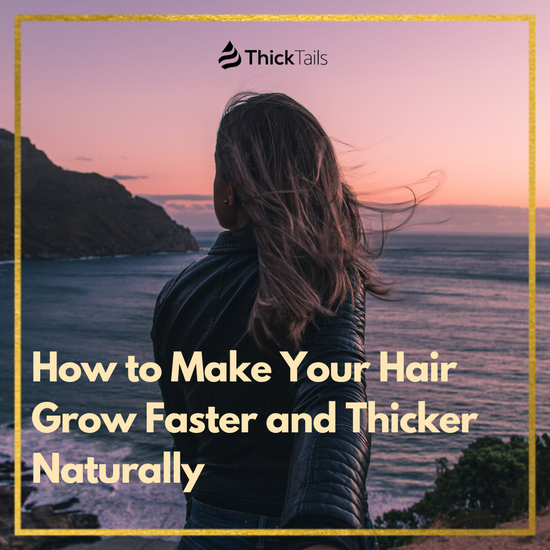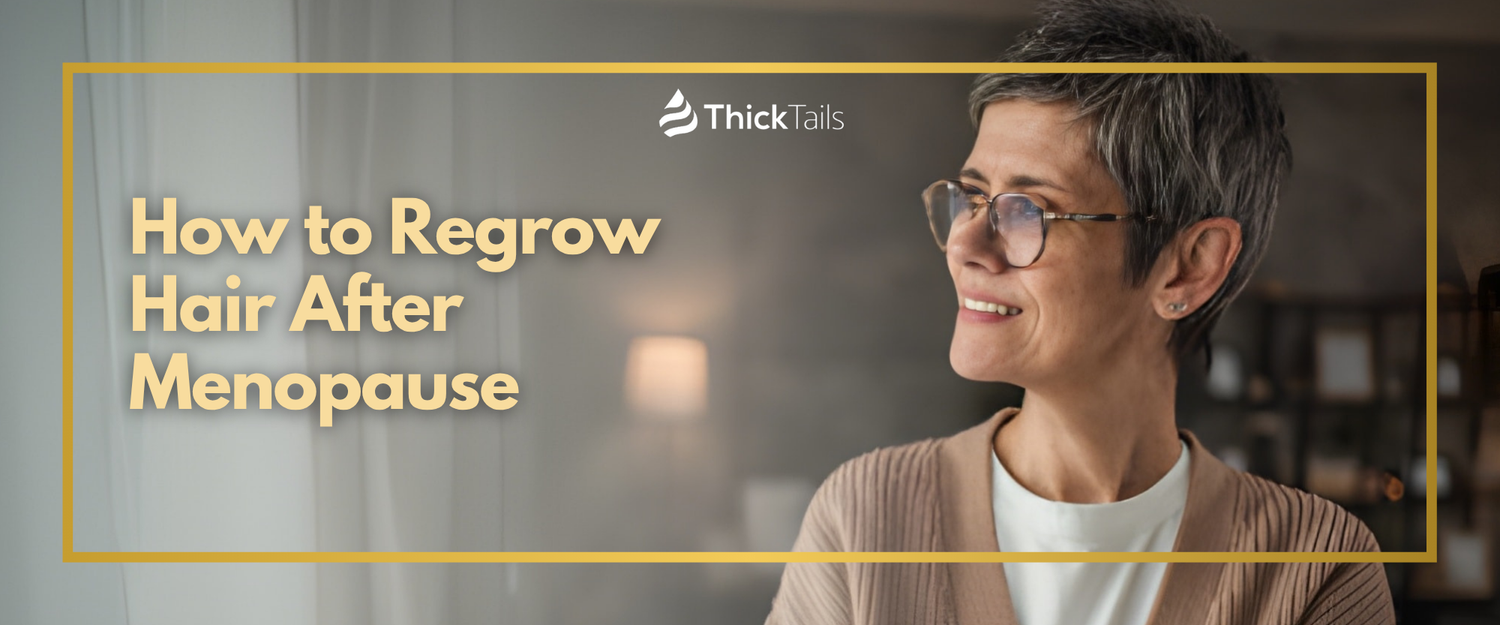For thousands of years, people have come up with various ways to keep their hair and skin healthy. This continuous search for hair growth remedies has led people to discover a hair growth and skin health ally in plants and animals – collagen. Yes, collagen, an essential protein type in the body, is mainly responsible for keeping our skin firm, elastic and glowing, and fortifying our hair strands. This reason has made women consider collagen as a secret ingredient to youthfulness. People also believe that collagen can only be found in fruits, vegetables, and poultry. However, recent studies have discovered how vast oceans and seas can provide more collagen for us, also known as marine collagen.
What is marine collagen, and how effective is it for providing excellent skin and hair growth support? Ascertain everything about marine collagen, its sources, benefits, and safety for you and your growing hair strands.
Marine Collagen: Where It Comes From and Why It Matters
It’s not easy to obtain and promote collagen production. However, eating seafood is a fast and easy way of getting collagen since many sea creatures are rich in marine collagen. This protein is abundant in marine life, particularly in the bones and scales of fish and shellfish. Not only that, you can get high levels of Type I collagen from these marine creatures. This collagen type is indispensable, especially for your blood vessels and tissues, and fortifies your integumentary system.
But why do you have to take notice of marine collagen, and why does it matter for hair growth? Discover everything marine collagen takes to be worthy of being a part of your hair care regimen.
The 5 Upsides of Having Marine Collagen for Hair Growth
Marine collagen does provide a lot of hair care benefits. Check out five advantages of having marine collagen as your hair growth aide.
1. It can toughen your hair strands.
As mentioned earlier, marine collagen is a Type I collagen responsible for maintaining the firm protein structure of your hair, skin, and nails. According to studies, marine collagen has 18 amino acids that can help during your hair’s keratin synthesis. Specifically, marine collagen contains the amino acid cysteine, considered a necessary amino acid for keratinization. This amino acid helps in materializing the keratin fibers, thereby giving your hair strands a sturdy structure against breakage.
2. It can preserve your hair’s tensile strength.
Your hair being sturdy against snapping isn’t enough to say that your hair’s in excellent condition. In reality, your hair strands need to withstand stretching without breaking, and this particular hair care necessity calls on the help of marine collagen. As a matter of fact, marine collagen can enhance your hair’s elasticity. It holds the fibers together, serving as another reason why your hair can return to its original shape without breaking or snapping into two.
3. It also delays your hair’s premature discoloration.
It may sound absurd to others, but for most people, hair greying is an alarming situation. There are various factors, such as genetics, that can cause your hair’s unusual discoloration. However, collagen deficiency is undoubtedly an influential factor in hair greying. Science backs up a plausible reason for hair greying – oxidative stress. Yes, not only can oxidative activities disrupt the hair growth cycle, but they can also destroy your hair follicle and the part responsible for your hair’s pigmentation. As a result, you may end up having grey hair earlier than expected. Both marine and animal collagens are present and abundant layers beneath your skin and hair due to a specific reason – to protect their cells against free radicals.
4. It supports hair follicle and scalp health.
Marine collagen keeps your hair follicles intact during the anagen or growth phase. Scientific studies also show how collagen builds up and surrounds your hair bulbs underneath the scalp to help your hair follicles mature and avoid falling prematurely.
Besides aiding hair follicle growth, collagen also keeps the skin on the scalp firm and smooth in the hopes of preventing scalp psoriasis. This skin condition involves the immune system attacking the healthy skin cells, resulting in cracks on the epidermis. The inflammation caused by psoriasis also breaks collagen apart, ensuing cracks and flakes on your scalp. With this, marine collagen can help restore your skin cells to reduce the visibility of scalp psoriasis. Disclaimer: marine collagen is not a cure for this autoimmune disease, but it can alleviate its unwanted effects.
Not only that, but marine collagen peptides also have potential antimicrobial and antifungal qualities that can keep scalp-related issues at bay. A 2016 study has found the latent antimicrobial properties of the peptide collagencin found in marine and fish collagen. Another study in 2018 also found antifungal activities from the collagen in milkfish skin. More researches have been conducted to learn more about collagen and its promising results on improving scalp conditions.
5. It also contributes to your hair’s moisture retention.
Moisture retention for your hair is a necessity that needs to be tended every day. When your hair isn’t well-hydrated, your hair becomes at risk not only of dryness but also hair breakage. Marine collagen works by keeping capillaries healthy so that they can successfully deliver fluids to cells, tissues, and organs, not missing on your hair follicles.

The Sustainable and Promising Sources: Where Can You Get Marine Collagen The Most?
Now that you’ve known what marine collagen can offer to your hair, it’s now your turn to find out where to get this hair growth nutrient.
1. Jellyfish
These transparent gelatinous creatures may not have blood and major organs, but they have collagen to offer for your hair and skin health. In fact, jellyfish and its potential collagen content have been studied for culturing cells.
2. Sponges
These sea creatures do not have fins or tentacles, but they contain a nutrient that can support even hair growth. While they may be attached to rocks, corals, and seabed, marine sponges have long been eyed by researchers when it comes to potential nutrients for beauty care. In 2017, some scientists studied the marine sponges Axinella cannabina and Suberites carnosus in search of high collagen content. The results have showcased the presence of collagen amino acids.
3. Fishes
Most people love eating the flesh of the fish, leaving the scales, bones, and fins as unpalatable. However, scientists and health experts have tried not to put these fish parts to waste by extracting collagen from them. Fishes such as codfish, sardines, mackerel, herring, and even sharks are plausible alternatives to collagen resources.

Safe or Not: Should You Pursue Marine Collagen Use for Hair?
No matter what happens, questions will always be thrown whenever a new ingredient or component is used for health and beauty products.
Two sides have been clashing since marine collagen became a popular nutraceutical found in skin and hair supplements. Some claim marine collagen to be a safe alternative to other collagen, while others are against it for safety reasons. While there are upsides, there are also downsides, such as the fishy smell that marine collagen emits, making it a displeasing component to be handled. Moreover, there have been limited studies regarding marine collagen, but so far, there have been no issues with those small studies.
So, is marine collagen still safe as a hair growth booster? The answer can either be a “yes” or a “no,” depending on your consumption and source. Marine collagen has profound benefits like any other kind of collagen. However, it is of utmost necessity to consider where marine collagen is extracted and how much you consume every day. The best thing you can do is consult your physician regarding your marine collagen consumption for your hair care necessities.
The Secret to Having Mesmerizing Hair is Marine Collagen.
Nothing beats a healthy lifestyle coupled with a nutritious diet and proper hair care habits. Therefore, it is of utmost significance to be conscientious with the vitamins, minerals, and other nutrients that make up your everyday meals and hair growth products. Don’t worry; marine collagen works by strengthening and improving the quality of your hair strands, making your hair healthier than before. The discovery and continuous research on marine collagen have also opened doors for pescatarians or people who don’t eat meat but consume fish. Thanks to marine collagen, they can now receive collagen for hair growth nourishment without depending on meat-based foods. Hence, you can mesmerize everyone with your beautiful locks by ensuring that your hair will receive the marine collagen content it deserves to grow healthy.
You Need More Than Marine Collagen for Hair Growth.
If you think that marine collagen is everything for your hair care needs, you may need to be more conscientious with your hair-related decisions. Marine collagen also needs other nutraceutical allies, such as hair vitamins, minerals, and proteins, to ensure your hair’s pristine condition. Therefore, don’t forget to supplement your body with the necessary nutrients for hair growth and use the best hair growth products enriched with marine collagen.










